In pics: Dubai Reefs is an ecotourism project unlike any other
Dubai Reefs aims to reconnect the ocean with the city…
Dubai Reefs is one of the latest projects announced by URB, the same masterminds behind The Loop Dubai and Agri Hub Dubai. Essentially, it will be the first floating sustainable city of its kind offering a mix of educational, research, residential, retail, hospitality, entertainment and community facilities.
Its main goal is to reinvent the way we plan our cities and to highlight the importance of living in harmony with the ocean.
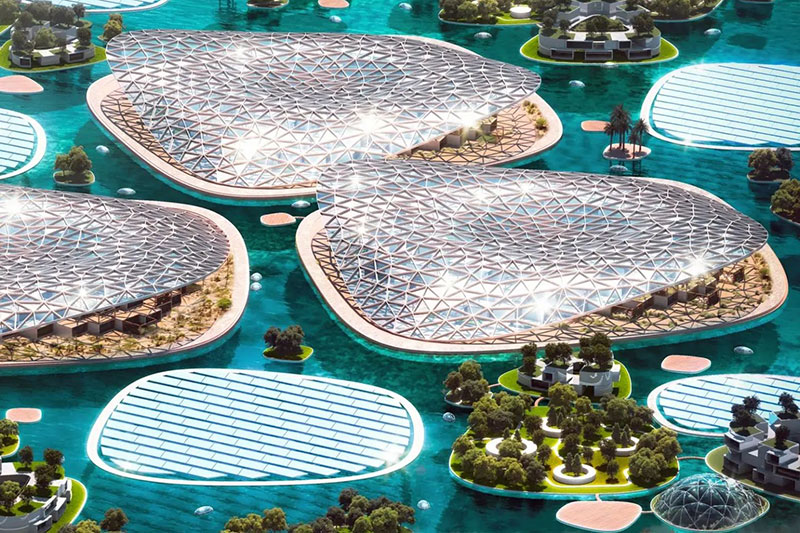
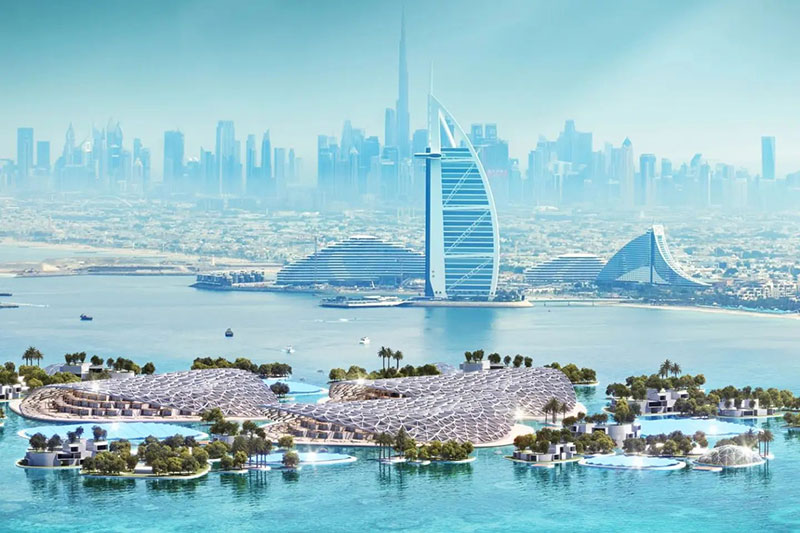
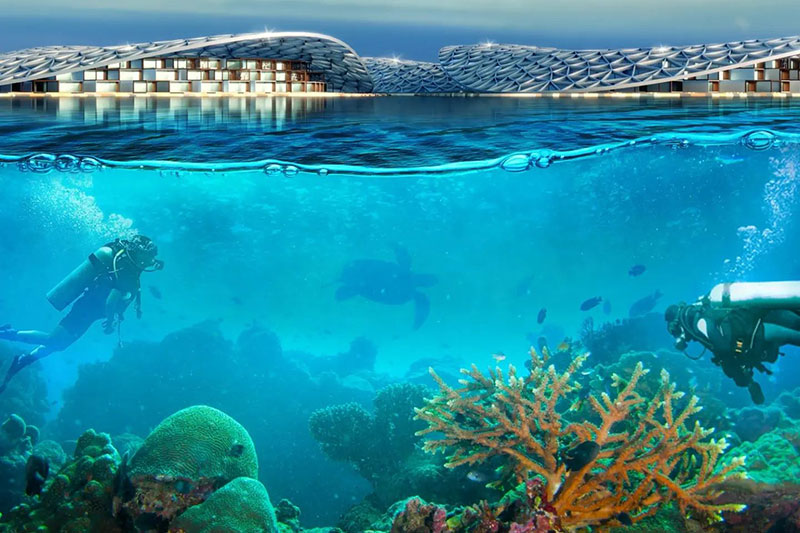
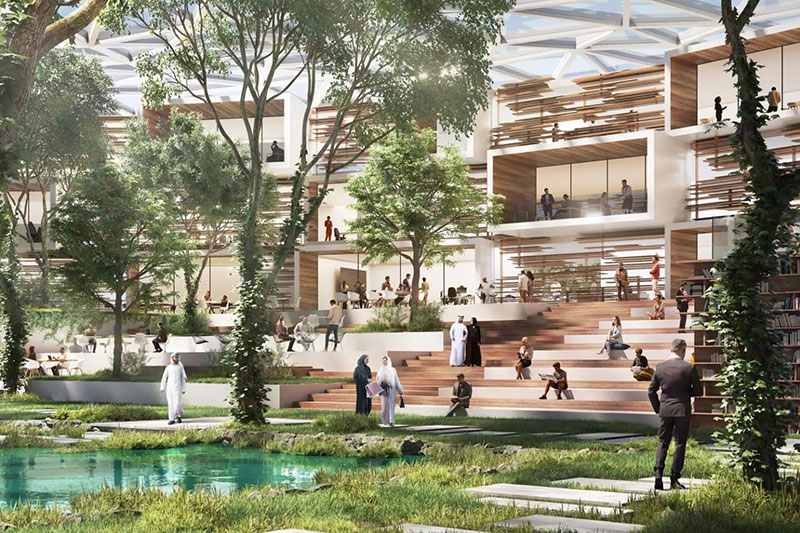
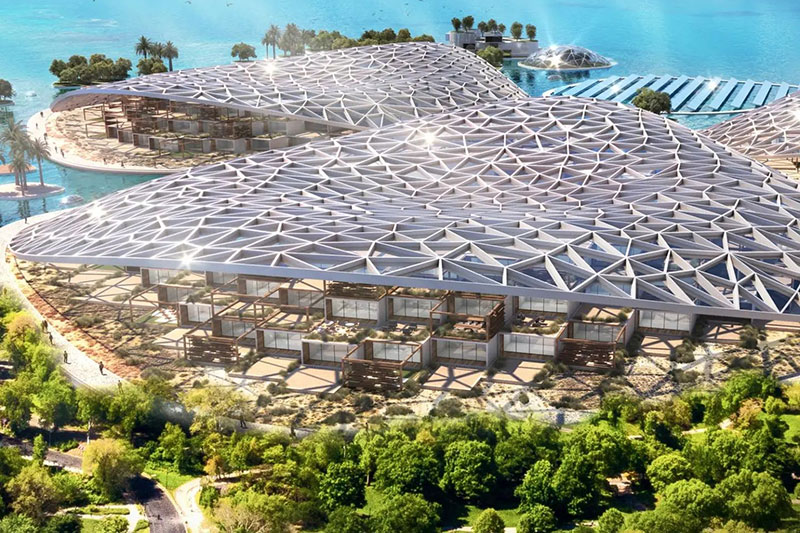





URB, a global leader in developing sustainable cities has shared details and photos of what this new Dubai mega project. Here’s just a small insight into this floating city.
Marine Institute
Did you know, coral reefs cover less than 1 per cent of the planet and are one of the most diverse ecosystems on our planet? However, coral reefs are declining due to environmental impacts and sadly, over the last 30 years, we have lost 50 per cent of the world’s corals. Coral reefs assist in water filtration, fish reproduction, shoreline protection and erosion prevention. It even enhances the water quality and clarity near the shore. So, yes… it’s important to look after it.
Enter Dubai Reefs. At the heart of this upcoming project will be a marine institute which will work towards the protection of the marine and coastal environment of Dubai – which has been greatly impacted due to past oil digging, dredging and reclamation projects.
The organization seeks to build the most diverse artificial reef which will cover 200 square kilometres. It will also create a home to more than one billion corals and 100 million mangrove trees.
The institute will attract oceanographers, climate scientists, ocean farmers, and marine educators for its unique facilities and will also aim to be responsible for the next generation of marine biologists. Several educational programs will also take place here to help spread knowledge to visitors.
The institute will also seek to lead global ocean cleanup initiatives such as cleaning up the 5.25 trillion pieces of plastic debris currently in our oceans.
View this post on Instagram
An ecotourism hub
The project will also feature various floating eco-lodges all powered by 100 per cent renewable energy through the use of various solar and hydropower. It will also generate energy from the ocean’s waves.
The ecotourism hub will offer a number of therapeutic benefits for visitors such as forest bathing – similar to the Japanese practice known as Shinrin Yoku. The hub will also help elevate the importance of coral reef restoration and education about marine life.
Another key feature of the project as pointed out by URB is Regenerative Ocean Farming. It is a climate-friendly food production technique.
Baharash Bagherian, CEO of URB stated that the health of a city depends on the health of our oceans and if we don’t make a change, our oceans will be very different by the end of the century. He stated, ‘We need an entrepreneurial spirit in the planning of coastal cities and the types of infrastructure as well as developments that are linked to the ocean. As an innovative coastal city, Dubai is best positioned to lead such a transformation.’
He added, ‘Beyond creating a unique resilient destination for ecotourism and marine research, Dubai Reefs aims to become a blueprint for ocean living, whilst mitigating the impacts of climate change.’
The project will not only promote social, environmental and economic benefits but will also transform Dubai into an eco-destination, where the ocean and the city thrive in balance.
Did you know? Over half of the oxygen we breathe is generated by our oceans. URB states ‘The ocean is also a carbon sink, absorbing more CO2 than it releases’.
At the moment, no completion date has been set, but we will be keeping an eye on any updates and progress.
For more information on this stunning project, visit urb.ae
Images: URB
